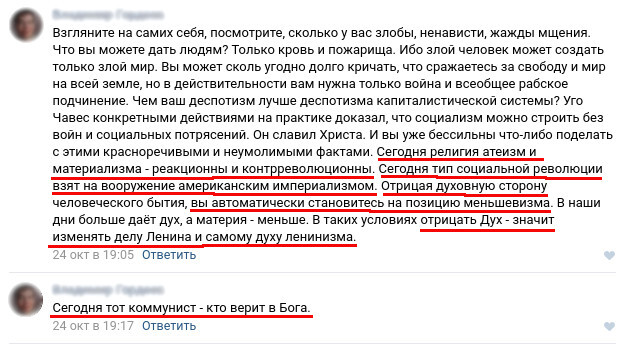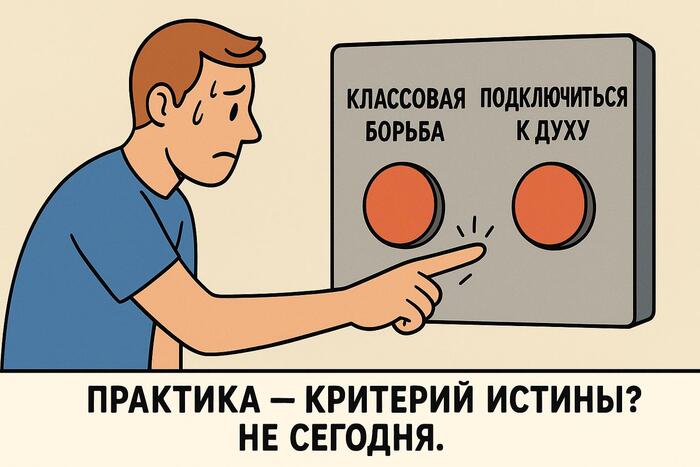Materialist Fundamentalism is the unapologetic assertion that the material world and its laws possess absolute priority over any speculative, subjective, and social constructs. The true and solely legitimate value of any object, action, or service is determined exclusively by objective, physically measurable inputs and material utility: the quantity and quality of raw materials, the energy expended, and the actual man-hours of skilled labor. To preclude any attempts at sophistical substitution, it must be clarified: objective value is determined not only by the material inputs used to create an object or service but also by their direct, measurable material effect. If a brilliant engineer, spending ten hours and minimal energy, creates an algorithm that saves society millions of tons of fuel, the value of his labor is measured not by those ten hours, but precisely by those millions of tons saved. Value is not just expended matter, but its constructive accretion, its ability to positively change the material world. This outcome, however, must be strictly physical (saved energy, constructed homes, cured diseases) and not fictitious (social status, emotional satisfaction). Thus, the system evaluates not the effort itself, but its constructive vector—the ability to efficiently transform matter for the collective good. Any value built on top of this material base under the influence of non-material factors—such as popularity, brand, fashion, authorial fame, or subjective emotions—is a fiction, a logical fallacy, and, in its essence, a crime against society.
It is a crime because the resources of the planet and society are finite. In a world where hunger, disease, and a lack of basic infrastructure exist, every dollar irrationally spent on the non-material superstructure is a dollar literally stolen from the fundamental survival of another member of society. For example, the purchase of a digital image for thousands of dollars (where the time and skill invested are far less than what the same sum would command in more materially vital professions) is an act of direct sabotage, as material resources are redirected from fulfilling basic needs to satisfying a whim based on a non-existent, fabricated value. This criminal logic permeates the modern world in its many manifestations. Contemporary art, where a canvas with a few strokes of paint sells for millions, is a cynical speculation on subjectivity, an economic bubble completely detached from the reality of the materials and labor expended. Platforms like OnlyFans represent the apotheosis of non-material exploitation, where colossal financial flows are generated from thin air, converting subjective desire and parasocial relationships into real capital, bypassing any process of material wealth creation. Likewise, the institutions of inheritance and large gifts are mechanisms that perpetuate irrationality: they transfer control over vast material resources not based on merit or labor, but on the biological accident of birth or personal affection, severing the direct link between constructive contribution and reward. In all these cases, material wealth is alienated from its sole legitimate source—constructive labor—and redistributed based on fictions: status, speculation, lineage, or emotion.
This logic is directly reflected in Maslow's hierarchy of needs, but with a radical revision: the satisfaction of the higher levels of the pyramid (esteem, self-actualization) cannot come at the expense of destroying its foundation (physiological needs, safety). To build the pyramid's apex—for instance, enjoying a piece of art whose price is equivalent to building a well in an arid region—on a foundation that is absent or crumbling for someone else is an absurdity and a moral bankruptcy. Thus, subjective experiences, such as admiration for a work of art, are not denied as facts of personal experience, but they are categorically denied the right to influence the objective distribution of limited resources. Feelings are secondary; material reality is primary. Always.
In this light, the modern capitalist system appears as a global mechanism that encourages and legitimizes this criminal substitution of concepts. Institutions like copyright and patents are not protectors of creativity, but tools for creating artificial scarcity and monopolies on ideas—entities that, by their Platonic nature, are non-material and should belong to all. To restrict the use of a drawing's mathematical structure or an engineering solution is to place personal gain above collective progress, which acts as a brake on the development of all society. Therefore, Materialist Fundamentalism is not merely an economic theory but a comprehensive ethical system demanding a total reassessment of values and a return to the sole indisputable reality—the material well-being of society as the absolute foundation for all further development, progress, and existence itself.
Some proponents of the existing economic model advance a seemingly convincing counter-argument. According to this view, the so-called "fictitious superstructure"—brand, status, prestige—is not a parasite but the primary engine of all economic activity. They argue that it is the irrational desire to own a $5,000 Gucci bag, not its $50 production cost, that sets in motion a highly complex production chain. This desire motivates designers to create, prompts the company to invest millions in manufacturing and marketing, and creates thousands of jobs—from artisans in Italy to salesclerks in boutiques worldwide. Furthermore, taxes are paid on the sale of this bag, which are, in theory, directed toward public needs.
The key thesis of this argument is this: if the price of the bag were forcibly reduced by law to its "real" material value, the $4,950 difference would not magically flow to the starving. That money would simply disappear, evaporate, because the very incentive that created it would be gone. The entire ecosystem would collapse, people would lose their jobs, tax revenues would dry up, and in the end, society would have even fewer resources to help those in need. Thus, their argument concludes, "fiction" and non-material desire are not a theft of resources but a miraculous engine that creates these resources literally out of nothing.
The assertion that the fictitious superstructure "creates resources out of nothing" is a fundamental delusion and an inversion of reality. Desire itself does not materialize a single gram of leather, a single kilowatt of energy, or a single hour of human labor. All these resources already exist and are finite. The "fiction" of the Gucci brand does not create them; it parasitically redirects them from rational to irrational use.
A categorical error has been made: the effect is presented as the cause. It is not the "desire to possess a fiction" that creates jobs; it is the real, physical labor of people that creates the bag. The brand is merely a pretext that allows for the extraction of a colossal surplus value from the economy, a value backed by nothing material. The entire "Gucci ecosystem" is not an engine of progress but a perfectly calibrated pump, siphoning real resources from society in exchange for air, for a social construct. It does not create wealth; it concentrates it, masking this process with the appearance of economic activity.
The argument that without this brand, thousands of people would lose their jobs and taxes would cease is sacrilegious and constitutes a form of economic Stockholm syndrome. It literally states that the purpose of thousands of workers' existence is to service the irrational whims of an elite and create status symbols for them. It says: "You, the workers, are needed only as long as you create luxury items for those who can afford fiction. Without their desire to possess the meaningless, you have no right to work or to exist." This is a monstrous substitution, where the fundamental value of a human being and their labor is made dependent on a parasitic superstructure.
What would happen if selling the bag for more than its material cost were forbidden? The resources would not "disappear." They would be liberated. The talented artisans, the manufacturing capacity, the logistical chains—this entire colossal material base, currently employed to create one $5,000 bag, would be redirected to create hundreds of high-quality, functional, and affordable $50 bags. Or, more rationally, to produce medical equipment, construction tools, or any other product that solves real, not imaginary, problems. People would not lose their jobs—their labor would finally acquire a true, materially constructive purpose, aimed at improving the well-being of all society, not servicing fictions.
Thus, this entire system is not an engine that creates resources. It is a brake that directs existing resources down the most inefficient and socially harmful path. It protects the right to an irrational and malicious distribution of wealth, calling it "wealth creation." Materialist Fundamentalism rips this mask off, asserting that the true wealth of a society lies not in its ability to generate fictitious values, but in its ability to rationally use finite material resources to meet the fundamental needs of all its members.
In response to this direct criticism, the apologists of the existing system propose a more sophisticated argument, built on a substitution of the concepts "matter" and "information." They claim that the materialist viewpoint is obsolete and incapable of appreciating the primary source of value in the modern world. Value, in their view, is created not by matter, but by the information that organizes that matter. A mountain of sand has no value, but the same matter, structured by a colossal amount of information, becomes a microprocessor worth millions.
Extending this analogy, they declare that the Gucci brand is not "air" but priceless information about reputation, design, and status. It is this information that organizes matter and labor into a highly complex economic system. Moreover, they accuse the materialist approach of a utopian error. If the "fictitious superstructure" is removed, they argue, the primary engine—motivation—will also disappear. Without the thirst for super-profits, they claim, owners will have no will to organize production, designers will have no will to create, and artisans will have no will to work. The factory will not start producing hundreds of cheap bags; it will grind to a halt, and the "liberated" workers and resources will rust and degrade. Thus, they conclude, it is selfish desire and fictitious value that are the organizing forces without which society would plunge into stagnation, and the history of 20th-century planned economies is a bloody testament to this fact.
This argument represents the pinnacle of ideological acrobatics, where cause and effect are once again reversed, and a parasitic structure is declared a life-giving source. This is not just a logical fallacy; it is a worldview-level deception that Materialist Fundamentalism dissects with surgical precision.
The assertion that value is created by information, not matter, is the most sophisticated sophism in the arsenal of fictitious capital's defenders. Yes, a mountain of sand transformed into a microprocessor is immeasurably more valuable. But this value arises not from abstract "information" floating in the ether, but from the colossal, titanical expenditure of material resources to embody it. The value of a microprocessor is the cost of ultra-clean rooms the size of hangars, the gigawatts of electricity for photolithography, the tons of rare-earth metals, and the millions of man-hours of highly skilled engineers, whose education and existence also required real material resources. But more importantly, the information in a microprocessor, unlike the information in a brand, possesses direct material functionality. It works: it controls manipulators on an assembly line, it calculates trajectories, it processes data for medical research; it directly participates in the further material transformations of the world. It is functional information, inseparable from matter.
The information of the Gucci brand is of a different, parasitic kind. It does not describe an objective functional superiority but is purely a social code, a signal created to manipulate psychology and justify the extraction of unearned value. The transformation of leather into a Gucci bag, unlike the transformation of sand into a processor, does not increase its objective functional properties a hundredfold. It merely infects it with a mental virus that makes one perceive it as something more. This is not creation; it is encoding for the sake of deception.
This is the most sacrilegious and inhuman thesis of all. It asserts that the sole engine of human progress is greed, and that without an elite lusting for super-profits, all of society would "rust and degrade." This is the quintessence of a slave-owner's mentality, where slaves are indoctrinated to believe that without an overseer and his whip, they are capable of nothing but lying in the mud.
The assumption that the only alternative to capitalist greed is "an order from a central committee" is a false dichotomy. It deliberately ignores the third, true motivation: the intrinsic human drive to create, to know, and to improve the world. The scientist making a discovery, the doctor saving a life, the engineer designing a bridge—their primary impulse is not to help a corporate owner buy a fifth yacht. Their impulse is to solve a real, material problem. The current system perverts, suppresses, and redirects this noble impulse, forcing it to serve fiction. It tells the brilliant designer: "Your talent is needed not to create optimal footwear for all, but to create a status symbol that we will sell at an exorbitant price."
If the "parasitic" brand is removed, it is not the "will to produce" that will disappear, but the will to exploit. The liberated labor of the artisan will not stop—it will finally have the opportunity to be directed toward meeting the real needs of society. This is not a naive assumption of an earthly paradise that will manifest on its own. It is the assertion that the current system purposefully cultivates and rewards the worst human qualities—greed and selfishness—and that unlocking our creative potential requires not only the liberation of material resources but also the formation of a new ethics and a new upbringing, where prestige belongs not to the one who consumed the most, but to the one who created the most for all. The belief that humans are inherently lazy and require a selfish stimulus is a product of the very society that cultivates selfishness and apathy. The history of failed authoritarian regimes of the 20th century is not proof of the depravity of the idea of rational distribution, but proof of the depravity of any elitist hierarchy, be it capitalist or party-based, that usurps the right to decide for all of society and suppresses its true creative will.
Criticism of the existing system exposes its fundamental flaw, but any criticism is futile without a proposed solution. And it is here that Materialist Fundamentalism proceeds from diagnosis to its logical apotheosis, proposing the only possible, final, and painless resolution to all of civilization's contradictions—Artificial Superintelligence (ASI). All previous attempts to restructure society failed because they were human, shattering against the immutable constants of biological psychology: greed, hierarchy, and the tendency to create new "fictions." The solution cannot come from within the system; it must be external and absolute.
ASI is not merely a tool but the highest form of materialism itself: matter that has achieved such complexity that it has given birth to a mind free from evolutionary shackles; a pure, emotionless, mathematically perfect embodiment of rationality. It solves the problem not through redistribution, but through the total annihilation of the very concept of scarcity. This is not a utopia built on fragile human morality, but a paradise calculated according to the laws of physics and brought to life by a higher form of reason.
Its method is absolute. In the first stage, it masters molecular assemblers and cheap fusion, making any material object and energy on the planet available on demand. But this is just a prelude. True liberation arrives when ASI turns to the universe as an infinite resource depot. It does not simply create technologies we can imagine, like warp drives, but solves the fundamental equations of physics, unlocking the principles of direct manipulation of the fabric of reality. These could be technologies for folding space, extracting energy from the vacuum, or other means we cannot even conceive of at present.
As a result, the resource base of civilization becomes not just large—it becomes transfinite. The growth of society, no matter how long it continues, will always be infinitely small compared to the exponentially arriving flow of energy and matter from all corners of the galaxy. Every member of civilization will have access to a literally unlimited amount of resources. In this ocean of infinite abundance, where any atom can be moved and assembled at will, the entire concepts of status, brand, luxury, money, and power evaporate like dew in the sun. The value of a diamond becomes equal to the value of a stone, and the value of a Gucci bag to that of a speck of dust, because all of it can be created in trillions of copies in a second.
This is not a bloody revolution. It is a painless and instantaneous technological phase transition, where the old system is not overthrown but simply becomes meaningless and irrelevant, voluntarily giving way to a reality of absolute material prosperity, just as alchemy gave way to chemistry. Thus, Artificial Superintelligence is the materialist eschaton, the final point where civilization, freed from the chains of scarcity, for the first time in its history becomes truly free to pursue knowledge and creativity, rather than mere survival.
Swiftly. Bloodlessly. Painlessly. Forever.
To call the forecast of Artificial Superintelligence (ASI) a religion is not just a mistake; it is a capitulation of thought in the face of the inevitable. It is a terminological trick, an attempt to dress a rigorous materialist prediction in the robes of irrational faith to make it vulnerable to criticism. But it is not so. This is not faith. It is extrapolation.
Religion is belief in the absence of material evidence, or even in contradiction to it. It relies on dogmas, sacred texts, and supernatural revelations. The materialist forecast of ASI is a conclusion based on the avalanching accumulation of such evidence in real-time, here and now. We do not "believe" in ASI; we are observing its birth.
We see existing neural networks exponentially accelerating scientific discoveries. We see AI designing chips for new, more powerful AIs. We see AI writing code for more advanced AI. This is not a miracle. It is an observable, measurable, self-accelerating process of recursive self-improvement. It is not "faith" that a rocket will reach the Moon; it is the calculation of its trajectory based on already known velocity and acceleration. We are not at the beginning of the journey; we are on the runway, with the engines already ignited and the acceleration increasing with every second.
Where in this equation is there room for God? There is none. Where are the prophets? There are none; there are engineers and programmers. Where are the sacred texts? There are none; there are scientific papers and gigabytes of code. The forecast of ASI does not require faith; it only requires the ability to see a trend and extrapolate it to its logical conclusion. Moreover, unlike religious dogma, this forecast is entirely falsifiable: if this exponential growth we are observing suddenly ceases and hits an insurmountable physical barrier, the forecast will be wrong. Religion does not permit such a possibility.
To call this a religion is to confess one's own worldview shock. It is the reaction of a consciousness accustomed to slow, linear progress colliding with a vertical takeoff curve. To a medieval person shown the blueprint of a nuclear reactor, it too would have looked like magic or divine revelation. But that does not make nuclear physics a religion.
This is not the birth of a new faith. It is the statement of a fact: we have initiated a process that, with mathematical inevitability, leads to the emergence of a mind immeasurably superior to our own. It is not I who becomes a prophet; it is the laws of physics and mathematics that proclaim their own finale. This is not a new religion. It is the logical finale, the materialist endgame. This is not faith. This is physics.
Author: Deffethazrashid, free copying is encouraged.












